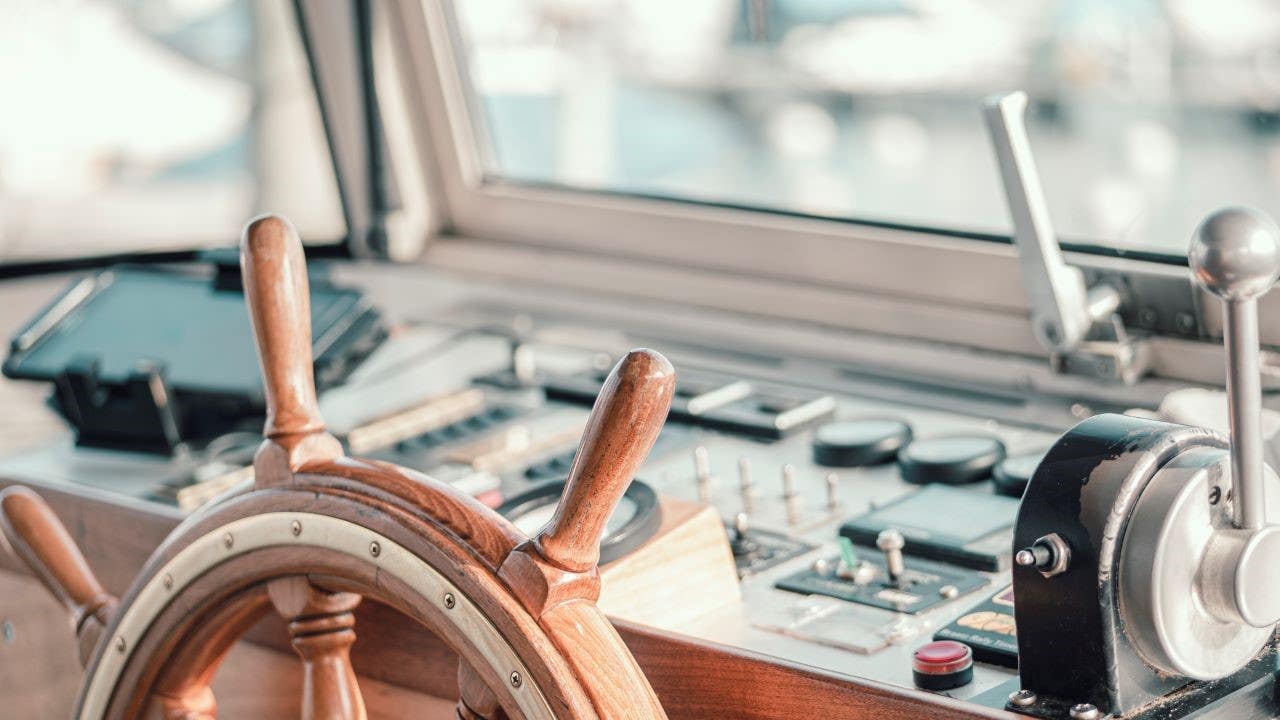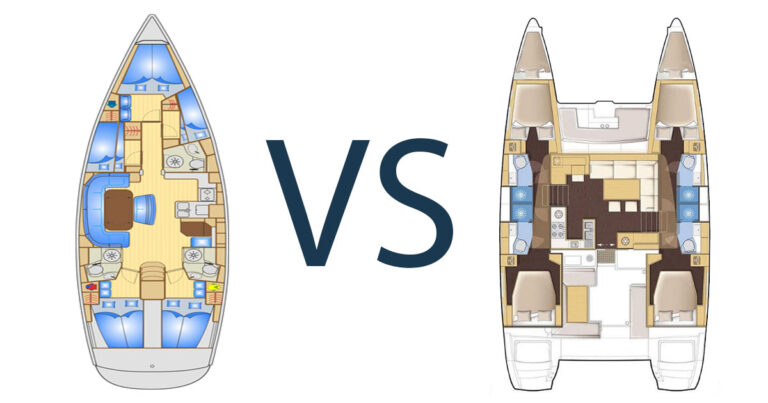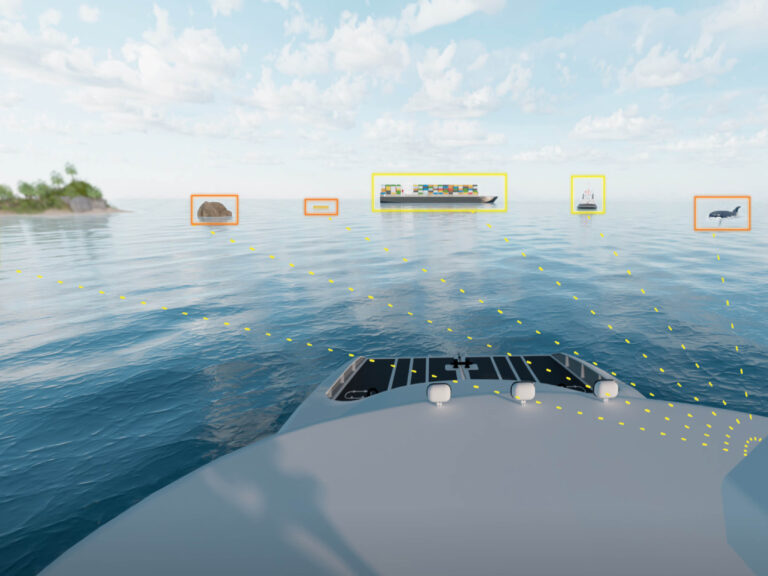Cost Analysis: Buying Vs. Renting a Boat
Buying a boat requires significant upfront costs, while renting allows for flexibility and lower financial commitment. We will explore the cost analysis of buying versus renting a boat, helping you make an informed decision based on your unique circumstances.
Choosing The Right Watercraft
Choosing between buying and renting a boat requires considering the costs involved. A detailed cost analysis is essential to determine if the long-term expenses of owning a watercraft outweigh the convenience of renting one.
When it comes to experiencing the open waters, one of the first decisions you need to make is choosing the right watercraft. Whether you’re interested in buying or renting a boat, selecting the type and size that best suits your needs is crucial.
Here are some considerations to help you make an informed choice:
Considerations for Type and Size of Boat:
- Determine your purpose: Think about what you want to do on the water. Do you envision thrilling adventures with water skiing and tubing, or are you more inclined to relax and fish? Each activity may require a different type of boat.
- Evaluate your experience level: Are you an experienced boater or a novice? Your familiarity with boating will influence the type and size of boat that is suitable for you. It’s important to feel comfortable and confident while navigating the waters.
- Assess your budget: Your budget will play a significant role in deciding the type and size of boat you can afford. Keep in mind that larger boats usually come with higher maintenance and operating costs.
- Consider storage options: If you choose to buy a boat, consider where you will store it when not in use. Do you have access to a boat dock, a marina, or a storage facility? The size and type of boat will affect your storage options.
- Think about transportation: Will you be hauling the boat to different bodies of water, or do you plan to primarily use it in one location? The size and weight of the boat will impact the transportation methods available to you.
Weighing the Pros and Cons of Ownership vs. Rental:
- Ownership advantages:
- Unlimited access: Owning a boat gives you the freedom to go boating whenever you want, without being restricted by rental availability.
- Customization: As a boat owner, you have the flexibility to customize your watercraft according to your preferences and needs.
- Pride of ownership: Owning a boat allows you to have a sense of pride and accomplishment, as it can be an investment in your recreational lifestyle.
- Ownership considerations:
- Higher costs: Alongside the purchase price, boat owners are responsible for ongoing expenses such as maintenance, storage, insurance, and fuel.
- Maintenance responsibilities: Boat ownership entails regular maintenance and repairs, which can be time-consuming and costly.
- Depreciation: Like any vehicle, boats depreciate over time, potentially impacting their resale value.
- Rental advantages:
- Flexibility: Renting a boat provides flexibility, as you can choose different types and sizes of boats depending on your current needs and preferences.
- Cost-effective for occasional use: If you only plan to use a boat occasionally, renting can be a more cost-effective option than purchasing and maintaining your own boat.
- No maintenance responsibility: When you rent a boat, the rental company typically handles all maintenance and repairs.
- Rental considerations:
- Limited availability: Depending on the demand and location, rental boats may not always be readily available, especially during peak seasons.
- Lack of customization: Rental boats are typically standardized, limiting your ability to personalize the watercraft to your liking.
- Time constraints: Rentals often come with a specific time limit, reducing your flexibility to spend extended periods on the water.
Choosing between buying and renting a boat requires careful consideration of various factors, including your purpose, experience level, budget, storage options, and transportation needs. Both options have their advantages and considerations, so weigh them against each other to determine which one aligns best with your preferences and lifestyle.
Cost Breakdown: Boat Ownership
Evaluating the costs of boat ownership, this analysis compares the financial implications of buying versus renting a boat. Explore the breakdown of expenses to help make an informed decision about boat ownership.
Boat ownership can be an exciting and fulfilling experience, but it’s important to carefully evaluate the costs involved before making a purchase. In this section, we’ll break down the various expenses associated with owning a boat, giving you a clear picture of what to expect financially.
From the initial purchase price to ongoing maintenance, insurance, and registration fees, understanding the cost breakdown will help you make an informed decision.
Calculating The Initial Purchase Price
When considering boat ownership, the first major expense is the initial purchase price. Here’s a breakdown of factors to consider:
- Boat Type: Different types of boats come with varying price tags. Factors such as size, age, brand, and condition will impact the price.
- New vs. Used: Buying a new boat typically costs more upfront, while a used boat may offer more affordability. However, maintenance costs could be higher for older vessels.
- Optional Features: Additional features and equipment, such as navigational systems and luxury amenities, can significantly increase the purchase price.
- Trailers: If you need a trailer to transport your boat, factor in the cost of purchasing or renting one.
Annual Expenses And Maintenance Costs
Beyond the initial purchase price, owning a boat comes with ongoing expenses and maintenance requirements. Here are the key points to consider:
- Docking or Storage: You’ll need a place to keep your boat when it’s not in use. This can include marina docking fees or expenses related to renting storage space.
- Fuel: Fuel costs can vary depending on the size and type of boat, as well as how often you use it.
- Routine Maintenance: Regular upkeep, including cleaning, engine servicing, and winterization, is necessary to keep your boat in good condition.
- Repairs and Upgrades: Unexpected repairs and upgrades can add to your annual expenses. Be prepared for the occasional unexpected cost.
- Accessories and Equipment: Life jackets, safety gear, fishing equipment, and other accessories are additional expenses you may need to budget for.
- Seasonal Expenses: If you live in an area with a boating season, consider any additional costs associated with launching and winterizing your boat.
Insurance And Registration Fees
Boat ownership also requires insurance and registration, which are ongoing costs to keep in mind. Here’s what you should know:
- Boat Insurance: It’s essential to have adequate insurance coverage to protect your investment. Factors that can affect premium costs include boat value, usage, and your boating experience.
- Registration and Licensing: In most cases, boats must be registered with your local maritime authority or government agency. Registration fees will vary depending on your location.
By understanding the cost breakdown of boat ownership, you can make an informed decision about whether buying or renting is the right choice for you. Remember to consider not only the initial purchase price but also the annual expenses, maintenance costs, insurance, and registration fees.
Owning a boat can provide a great deal of enjoyment, but it’s important to ensure it aligns with your budget and financial goals.
Cost Breakdown: Boat Rentals
Boat rentals offer a cost breakdown that analyzes the financial aspects of buying versus renting a boat. Explore the economic benefits and considerations to make an informed decision.
Are you considering the options of buying or renting a boat? If so, it’s important to analyze the costs involved to make an informed decision. In this section, we will focus on the cost breakdown of boat rentals. Let’s dive in!
Comparing Rental Prices
When comparing rental prices for boats, there are a few factors to consider. Here are the main points to keep in mind:
- Boat Type: Different types of boats come with varying rental costs. Factors such as size, age, and amenities all play a role in determining the rental price.
- Rental Duration: The length of time you wish to rent the boat can significantly impact the cost. Rental rates can vary based on hourly, daily, or weekly usage.
- Peak Season Pricing: During peak seasons, when demand is high, rental prices tend to be considerably steeper. Planning your boat rental during off-peak times can help you save some money.
- Location: The location of the rental company can also affect the prices. In popular boating destinations, rentals may be more expensive compared to rental companies found in less popular locations.
Additional Costs And Hidden Fees
While rental prices are an important consideration, it’s equally crucial to be aware of additional costs and potential hidden fees. Here are some factors to keep in mind:
- Security Deposit: Many boat rental companies require a security deposit before the rental commences. This deposit is generally refundable after you return the boat in good condition.
- Fuel Costs: Most boat rentals do not include the cost of fuel. You’ll need to factor in the fuel expenses depending on the boat’s fuel consumption and the distance you plan to cover.
- Cleaning and Maintenance Fees: Some rental companies charge cleaning and maintenance fees. Make sure to inquire about these potential charges beforehand.
- Late Return Fees: Returning the boat after the designated rental period may result in late fees. It’s important to adhere to the agreed-upon rental duration to avoid any unexpected expenses.
- Equipment Rental: If you require additional equipment such as wakeboards, life jackets, or water skis, there may be an additional fee for renting these items.
Insurance Considerations
When renting a boat, insurance is an important aspect to consider to protect yourself from potential liabilities. Here’s what you need to know:
- Liability Insurance: Many boat rental companies offer liability insurance coverage. It’s essential to understand the extent of coverage provided by the rental company and evaluate if additional coverage is required.
- Damage Insurance: Boat rentals might come with damage insurance to protect against accidental damage. However, it’s crucial to review the terms and conditions to ensure you have adequate protection in case of unforeseen incidents.
By analyzing the rental prices, additional costs, and insurance considerations, you can make a well-informed decision when considering boat rentals. It’s important to thoroughly research different rental companies, compare prices, and understand all the associated costs to ensure a memorable and cost-effective boating experience.

Credit: www.cnbc.com
Analyzing Long-Term Usage
Analyzing long-term boat usage provides a cost analysis for buying versus renting, helping individuals make informed decisions about ownership. Considerations include maintenance costs, depreciation, and frequency of use, offering valuable insights for budget-conscious boat enthusiasts.
Frequency Of Use
- Determine how often you plan to use the boat:
- Are you an avid boater who will be out on the water every weekend?
- Or do you anticipate more infrequent usage, such as a few times a month or even just a few times a year?
Duration Of Ownership
- Consider the length of time you intend to own the boat:
- Are you planning to use it for just a couple of years before upgrading or selling?
- Or do you envision keeping it for the long haul, using it for several years or even decades?
Estimating The Cost Per Use
- Calculate the cost per use based on the frequency of use and the duration of ownership:
- When buying a boat, consider expenses such as the purchase price, insurance, maintenance, mooring fees, and depreciation over the estimated period of ownership. Divide the total cost by the projected number of times you plan to use the boat during that period.
- When renting a boat, calculate the average rental cost per outing, factoring in the expected number of times you will rent over the same duration.
Value For Money: Ownership Vs. Rental
- Assess the value for money offered by boat ownership compared to rental:
- Ownership allows you the freedom to use the boat whenever you please, without restrictions or additional rental fees.
- Rental offers flexibility if you only need a boat on specific occasions and don’t want the financial commitment of ownership.
Consider these factors and take the time to crunch the numbers carefully. Determining the frequency of use, duration of ownership, and cost per use will help you make an informed decision about whether buying or renting a boat is the better option for you.
Flexibility And Freedom
Flexibility and freedom are important factors to consider when analyzing the costs of buying versus renting a boat. Explore the advantages of both options to make an informed decision.
Exploring The Benefits Of Boat Ownership
Owning a boat offers a plethora of advantages that go beyond the allure of the open waters. The flexibility and freedom that come with owning a boat can completely transform your boating experience. Let’s dive into the benefits of boat ownership:
- Ultimate Flexibility: When you own a boat, you have the freedom to voyage whenever you desire. You can throw off the restrictions of rental schedules, reservations, and availability. The boat is yours to enjoy whenever you please, allowing you to embark on impromptu adventures with ease.
- Unrestricted Access: With your own boat, you have unrestricted access to any waterway that captures your imagination. Whether you prefer cruising along peaceful rivers or exploring the vastness of the open sea, the choice is yours. No longer confined to rental locations, you can truly embrace the exploration of new and varied destinations.
- Personalization and Customization: Boat ownership allows you to customize and personalize your vessel to fit your needs and preferences. From adding luxury amenities to outfitting it with the latest technology, you have the freedom to create a unique and tailored boating experience that aligns perfectly with your style.
- Convenience and Availability: The convenience of having your boat readily available cannot be overstated. No more planning in advance or worrying about booking reservation slots during peak seasons. Your boat is ready to embark on adventures whenever you are, providing you with convenience and unmatched accessibility.
Advantages Of Renting A Boat For Various Occasions
While boat ownership offers incredible flexibility and freedom, there are also occasions where renting a boat can be advantageous. Here are some benefits of renting a boat for different situations:
- Special Occasions and Celebrations: Renting a boat for birthdays, anniversaries, or other special occasions allows you to create unforgettable memories with your loved ones. It offers a fantastic backdrop for celebrations and provides a unique experience without the long-term commitment of ownership.
- Exploratory Trips: If you enjoy exploring different waterways without the hassle of bringing your own boat, renting can be a great option. It allows you to discover new destinations and test out various types of boats without the responsibility and cost of ownership.
- Low Maintenance: Renting a boat means minimal maintenance responsibilities on your part. You can simply enjoy your time on the water without worrying about cleaning, repairs, or storage. This can be particularly appealing if you have limited time or lack the expertise in boat maintenance.
- Cost Savings: Renting a boat can often be more cost-effective, especially for occasional boaters. It eliminates upfront costs, such as purchasing a boat and associated equipment, ongoing maintenance expenses, and storage fees. Renting allows you to enjoy the pleasures of boating without the long-term financial commitment.
Renting a boat offers convenience, affordability, and the opportunity to indulge in boating activities without the responsibilities of ownership. It’s a great way to enjoy a day or weekend on the water when ownership may not be practical or preferred.
Safeguarding Your Investment
Deciding between buying and renting a boat? Safeguard your investment with a cost analysis to make an informed decision. Determine the financial benefits of each option for a seamless boating experience.
When it comes to deciding whether to buy or rent a boat, safeguarding your investment should be a top concern. Owning a boat is a significant financial commitment, and it’s essential to take steps to protect your investment. This section will explore the importance of storage and security, as well as maintenance and upkeep, to ensure your boat remains in top condition for years to come.
The Importance Of Storage And Security
Proper storage and security measures are vital for preserving the value and longevity of your boat. Here’s why:
- Protection from the elements: Storing your boat in a secure, covered facility shields it from the damaging effects of sun, rain, snow, and extreme temperatures. This reduces the risk of fading, corrosion, and water damage that could depreciate its value.
- Theft prevention: Keeping your boat in a secured storage facility or utilizing anti-theft devices significantly reduces the chances of theft. This helps safeguard your investment and provides peace of mind knowing your boat is protected.
- Reduced wear and tear: Storing your boat in a secure environment prevents unnecessary wear and tear caused by exposure to the elements, vandalism, or accidental damage. This prolongs its lifespan and reduces the need for costly repairs.
- Access to specialized services: Some storage facilities offer additional services like winterization, maintenance, and professional cleaning. Taking advantage of these services ensures your boat is properly cared for and ready for the next season.
Maintenance And Upkeep To Protect Your Investment
Regular maintenance and upkeep are essential for protecting your boat’s value and avoiding costly repairs. Here’s why maintenance matters:
- Preventive measures: Performing routine maintenance tasks such as engine servicing, hull cleaning, and electrical system checks can catch potential issues before they become major problems. This saves you money in the long run and extends the life of your boat.
- Safety on the water: Regular maintenance ensures the safety of you and your passengers while out on the water. Regular inspections of important systems like steering, navigation lights, and life-saving equipment ensure they are in proper working order when you need them most.
- Resale value: A well-maintained boat retains its value better than one that has been neglected. Regular maintenance and proper upkeep demonstrate to potential buyers that the boat has been well-cared for, increasing its resale value.
- Peace of mind: Knowing that your boat is in optimal condition provides peace of mind while enjoying your time on the water. Regular maintenance and upkeep give you the confidence that your investment is protected and operating smoothly.
Safeguarding your investment in a boat involves proper storage, security measures, and regular maintenance. By taking these steps, you can preserve the value of your boat, ensure its longevity, and enjoy worry-free boating experiences for years to come.
Environmental Impact
Considering the environmental impact, a cost analysis is imperative before deciding whether to buy or rent a boat. Determining the sustainable choice between ownership and rental is crucial for minimizing ecological footprints and promoting responsible water recreation.
Understanding The Ecological Footprint Of Boat Ownership
In evaluating the cost analysis of buying versus renting a boat, it is crucial to consider the environmental impact of boat ownership. Owning a boat can have a significant ecological footprint due to various factors such as fuel consumption, maintenance, and manufacturing processes.
Understanding these impacts can help you make an informed decision regarding boat ownership.
- Fuel Consumption: Boat ownership entails regular fuel consumption for cruising in open waters or engaging in recreational activities. Storing and handling large amounts of fuel can lead to spillages, polluting the water, and harming marine life. It’s important to consider the amount of fuel a boat will consume and the associated environmental effects.
- Maintenance: Boats require regular maintenance, including cleaning, painting, and repairs. The products used for these tasks can contain harmful chemicals that can seep into the water and have a detrimental effect on aquatic ecosystems. Additionally, the disposal of waste generated during maintenance procedures can contribute to pollution.
- Manufacturing Processes: The production of boats involves numerous materials and energy-intensive processes. These manufacturing activities may leave a significant carbon footprint due to the extraction and processing of raw materials, the energy consumed during production, and transportation logistics. By opting to rent a boat instead of owning one, you can reduce your contribution to the overall manufacturing impact.
Sustainable Practices For Renting Or Owning A Boat
Whether you decide to buy or rent a boat, there are sustainable practices that can minimize the environmental impact. Implementing these practices can help ensure responsible boating while enjoying the pleasures of being out on the water.
- Fuel Efficiency: Choose boats or engines that are designed to be fuel-efficient. Opting for newer models with efficient engines can significantly reduce fuel consumption and emissions. This not only helps the environment but also saves you money in the long run.
- Responsible Maintenance: When performing maintenance on a boat, choose environmentally friendly products and procedures. Look for non-toxic alternatives for cleaning, antifouling, and painting. Properly dispose of waste materials and chemicals, ensuring they do not end up in the water.
- Protecting Marine Life: Be cautious while boating in sensitive areas and near marine life habitats. Follow guidelines to avoid disturbing or harming marine ecosystems. Refrain from throwing any trash or debris overboard and dispose of waste properly onshore.
- Educate Yourself: Stay updated on best practices and regulations related to boating. Attend boating safety courses and learn about sustainable boating techniques. This knowledge will enable you to minimize your ecological impact while enjoying your time on the water.
By understanding the ecological footprint associated with boat ownership and implementing sustainable practices, you can make a conscious choice that minimizes harm to the environment. Whether you choose to buy or rent a boat, responsible boating practices can help preserve our oceans, lakes, and rivers for future generations to enjoy.
Frequently Asked Questions On Cost Analysis: Buying Vs. Renting A Boat
Are Boats Worth The Investing?
Yes, boats are a worthwhile investment due to their versatility, enjoyment, and potential for resale value.
How Much Does It Cost To Own And Maintain A Boat?
The cost of owning and maintaining a boat varies depending on factors such as size, type, age, and location.
What Are The Pros And Cons Of Owning A Boat?
Pros of owning a boat include freedom to explore, enjoying water activities, and creating lasting memories. Cons involve high costs, maintenance required, and limited use if located far from water.
Is Buying A Boat An Asset?
Yes, buying a boat can be considered an asset due to its potential for resale value.
Conclusion
After analyzing the cost factors of buying versus renting a boat, it’s clear that both options have their advantages and disadvantages. Buying a boat offers long-term ownership, the ability to customize and personalize, and potential investment returns. However, it comes with high upfront costs, ongoing maintenance, and the responsibility of storing and insuring the boat.
On the other hand, renting a boat provides flexibility, lower upfront costs, and the freedom to try different types of boats. However, the expenses can add up over time, and you don’t have the same level of control and ownership.
Ultimately, the decision should be based on your individual circumstances, budget, and usage requirements. If you have the financial means, a strong interest in boating, and plan to use it frequently, buying may be a wise long-term investment. But if you’re unsure or have limited usage needs, renting can offer a more affordable and flexible solution.





